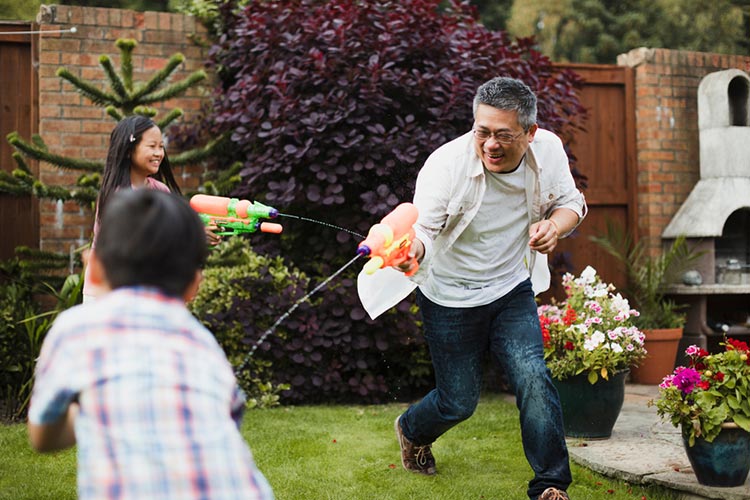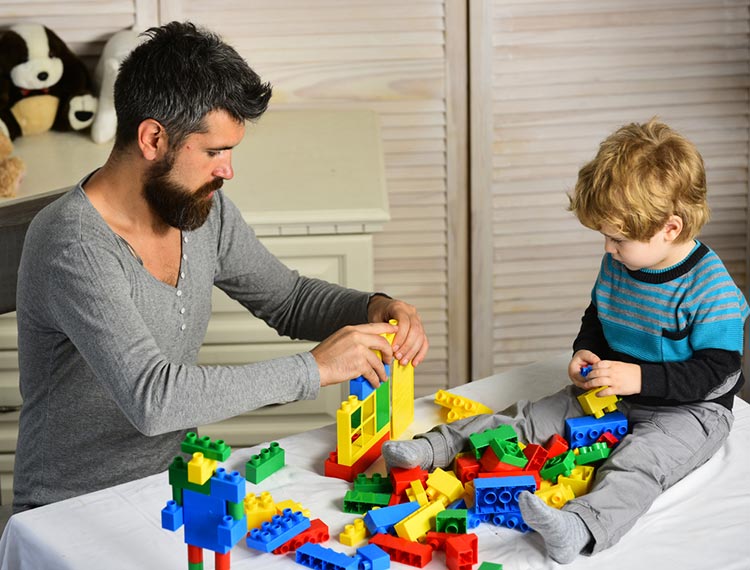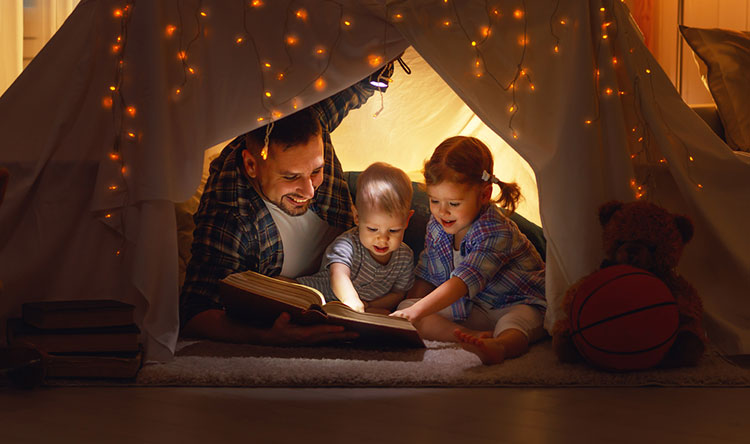When fathers, or father substitutes, play and are involved with their children from birth, the benefits are immeasurable! In Fact, children whose fathers make time to play with them from an incredibly young age generally find it easier to control their behaviour and emotions as they grow up. These were the findings of a recent study conducted by the academics at the Faculty of Education at the University of Cambridge and the LEGO Foundation.
Parent-child play in the first years of life is known to support essential social, cognitive and communication skills. Although there are many similarities between fathers and mothers overall, fathers tend to engage in more physical play even with the youngest children, opting for activities such as tickling, chasing, and piggy-back rides. This kind of play has its benefits, which we will explore in more detail in this article as well as provide you with some valuable tips on what kind of play is best and what qualities and behaviours it influences in your children.
So, What Are the Benefits?
As a whole, this kind of more “rougher” play seems to help children learn to better control their feelings. It may also make them better at regulating their own behaviour later, as they enter settings where those skills are important – especially school. In fact, children who enjoyed high-quality playtime with their fathers are less likely to exhibit hyperactivity, or emotional and behavioural problems. They also appeared to be better at controlling their aggression, and less prone to lash out at other children during disagreements at school. According to experts, this is because physical play creates fun, exciting situations in which children have to apply self-regulation. It forces situations where one might have to control their strength, as well as learn when things have gone too far. It is a safe environment in which children can practise how to respond. If they react the wrong way, they might get told off, but it is not the end of the world – and next time they might remember to behave differently.
Types of Play
There are various types of games that you can play with your kids, each with its own merits and benefits. Here are but a few of the most common types.
Rough and Tumble Play
This is the most common type associated with fathers. As the name implies, it involves a rough and tumble play of some sort.

How it benefits your child:
It improved their coordination and balance while also helping them learn more about physical limits
Messy Play
This involves games with mud, clay, or sand, maybe even some water fights and even paint ball once the kids get older.

How it benefits your child:
Improves concentration and fine motor skills. It also helps with problem solving.
Building and Puzzles
This can involve anything from building blocks and puzzles, to even taking up a joint fun project to build with/for your kids, such as a small house or even homemade toys.

How it benefits your child:
It helps with spatial awareness, fine motor skills, problem-solving, analysis, planning, creativity, and hand-eye coordination
Sport and Adventuring
This involves everything from team sports such as football and volleyball to riding, running or exploring nature together.

How it benefits your child:
Getting involved in outdoor activities sets a good example for your kids, it also encourages them to pursue a sport they already show an interest in. Besides this, outdoor sports in general are good for mental and emotional health, bone and muscle strength, immune systems, and much more.
Silly Songs and Comedic Games, Jokes, and Stories
Funny games, comedy, poetry, stories, and even the infamous “dad jokes” all sit within this category. These are things that any father can do at any time of the day.

How it benefits your child:
Dad jokes are the best, aren’t they? Believe it or not, they actually have a benefit. They help children see the lighter side of life, while at the same time, alongside poetry and stories, these light-hearted jokes also teaches them about the complexities of language. In addition, stories, rhymes, songs, comedy, and poetry help with creativity, language, patterns, characters, and events. It also teaches them to think out of the box.
Make the Time
If you are a dad, keep involved for the sake of your growing relationship with your children. But most importantly, keep involved with your children for who they are themselves.
Whether we realize it or not, we influence who our children grow up to be by the interaction we have with them when they are young. For dads who live apart from their kids, all is not lost.
Writing letters or emails, and phone calls, or even just playing some online games together can go a long way in showing that you care and willingly want to be involved in their lives. Always remember, it is not really the quantity of interaction that really matters as opposed to the quality. So, find an activity you both like and have fun with it.


